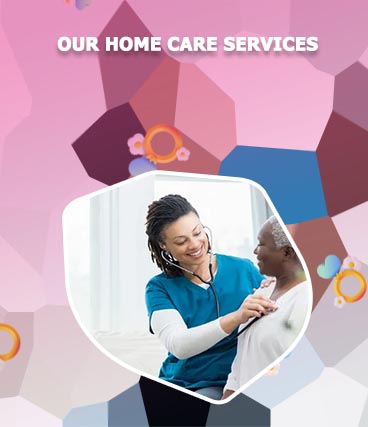Medical home care

When it comes to providing medical care at home, there are many factors to consider to ensure the safety and well-being of patients. From understanding the importance of proper medication management to utilizing telemedicine services, there are various strategies that can help improve the quality of medical home care. The following list of articles provides valuable insights and tips on how to effectively navigate the challenges of providing medical care in a home setting.
The Importance of Medication Management in Medical Home Care
In the realm of medical home care, one crucial aspect that often goes overlooked is medication management. Ensuring that patients are taking the right medications, at the right dosages, and at the right times is essential for their overall well-being and recovery. Proper medication management can prevent serious health complications, reduce hospital readmissions, and improve the quality of life for patients.
Medication management in medical home care involves a team effort between healthcare providers, patients, and caregivers. Healthcare providers must accurately prescribe medications, educate patients about their medications, and monitor for any adverse effects. Patients and caregivers, on the other hand, must diligently follow the prescribed medication regimen, keep track of refills, and report any concerns to their healthcare provider.
Failure to effectively manage medications can result in medication errors, drug interactions, and poor treatment outcomes. This is why medication management should be a top priority in medical home care.
In conclusion, medication management plays a vital role in ensuring the success of medical home care. By prioritizing medication management, healthcare providers can improve patient outcomes, reduce healthcare costs, and ultimately enhance the overall quality of care provided to patients in the United States.
This article is important for healthcare professionals and patients alike who are involved in medical home care.
Utilizing Telemedicine for Remote Patient Monitoring in Home Care
Telemedicine has revolutionized the way healthcare is delivered, especially in the context of home care. Remote patient monitoring through telemedicine allows healthcare providers to monitor patients' vital signs, symptoms, and overall health from a distance, ensuring timely intervention and personalized care. This technology has become increasingly important, especially in the United States, where the aging population and the prevalence of chronic diseases pose significant challenges to the healthcare system.
One of the key advantages of utilizing telemedicine for remote patient monitoring in home care is the ability to provide continuous care and support to patients in the comfort of their own homes. This not only improves patient outcomes but also reduces the burden on healthcare facilities and staff. Additionally, telemedicine enables real-time communication between patients and healthcare providers, facilitating timely decision-making and interventions.
However, in order to fully leverage the benefits of telemedicine for remote patient monitoring, certain factors need to be considered. Firstly, ensuring patient privacy and data security is crucial to maintaining trust and compliance with regulations such as HIPAA. Secondly, healthcare providers must have access to reliable and user-friendly telemedicine platforms to effectively monitor and communicate with patients. Lastly, ongoing training and education for both patients and healthcare providers are essential to maximize the potential of telemedicine in home care.
Implementing Safety Protocols for Medical Equipment in Home Care Settings
In the United States, ensuring the safety of medical equipment in home care settings is crucial for the well-being of patients. Implementing safety protocols can help prevent accidents, injuries, and malfunctions that may arise from the use of medical devices at home. Here are some key measures that can be taken to enhance safety:
-
Regular Inspections: Conducting routine inspections of medical equipment is essential to identify any potential issues or malfunctions. This can help prevent accidents and ensure that the equipment is functioning properly.
-
Proper Training: Providing adequate training to patients and caregivers on how to use medical equipment safely is paramount. This includes instructions on assembly, operation, maintenance, and troubleshooting in case of emergencies.
-
Storage Guidelines: Proper storage of medical equipment is important to prevent damage and ensure longevity. Storing equipment in a clean and dry environment, away from heat sources and moisture, can help maintain its integrity.
-
Emergency Preparedness: Developing an emergency plan that outlines steps to take in case of equipment failure or accidents is essential. This can help minimize risks and ensure prompt responses to unforeseen situations.
-
Documentation: Keeping detailed records of equipment maintenance, repairs, and incidents can help track the history of each device. This information can be valuable for future reference and ensuring compliance
Training Family Caregivers for Effective Medical Home Care Support
In the United States, family caregivers play a crucial role in providing medical home care support to their loved ones. According to a study conducted by the AARP Public Policy Institute, there are over 40 million family caregivers in the United States, with the majority of them providing assistance with medical tasks such as medication management, wound care, and symptom monitoring. Despite their important role, many family caregivers report feeling unprepared and overwhelmed by the responsibilities of providing medical care at home.
Research has shown that training family caregivers in medical tasks can lead to better health outcomes for care recipients. A study published in the Journal of the American Geriatrics Society found that family caregivers who received training in medication management were more confident in their abilities and were able to prevent medication errors. Another study in the Journal of Pain and Symptom Management showed that family caregivers who received training in symptom management were better able to recognize and address symptoms in their loved ones.
It is clear from the research that training family caregivers for effective medical home care support is essential for improving the quality of care provided to care recipients. By equipping family caregivers with the knowledge and skills they need to confidently and competently provide medical care at home, we can ensure better health outcomes for those in need of care. This article highlights the importance of investing

